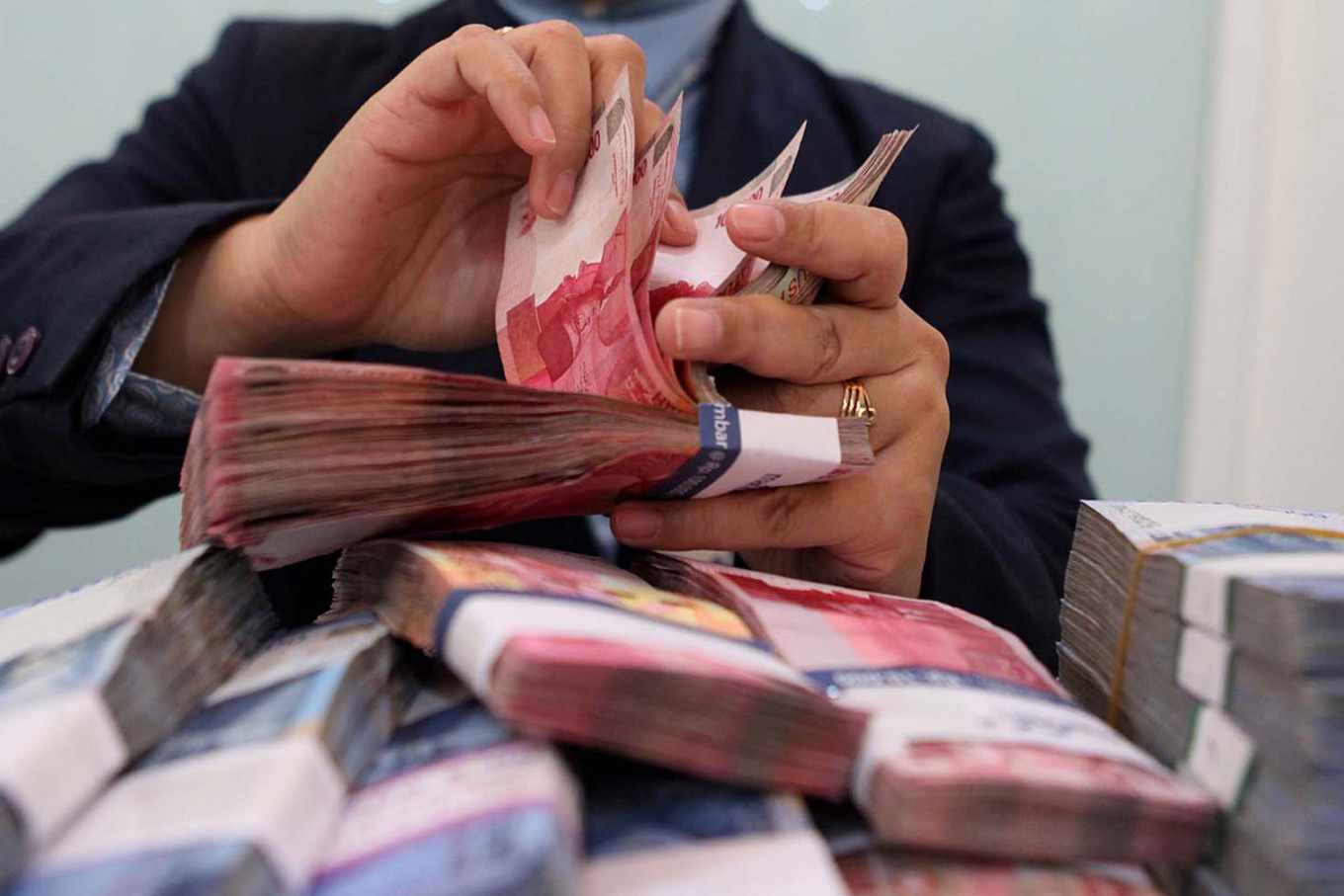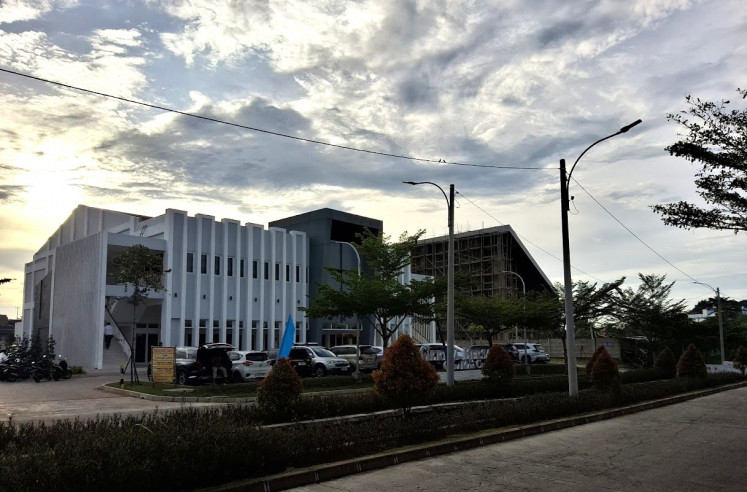Popular Reads
Top Results
Can't find what you're looking for?
View all search resultsPopular Reads
Top Results
Can't find what you're looking for?
View all search resultsProtecting our financial system from next crisis
As businesses collapse and bad loans mount, banks are hit with erosion of their liquidity. And as the country’s economy slips into a deeper malaise, the emergence of a financial crisis cannot be ruled out.
Change text size
Gift Premium Articles
to Anyone
T
he Indonesian banking system was in good shape before the coronavirus outbreak. The system has weathered well simultaneous economic and credit decelerations. Systemic risk is low and the banking system appears generally resilient over severe shocks. Banks are highly capitalized, with an average capital adequacy ratio (CAR) of 22.8 percent in January 2020, far exceeding the Basel III requirement. Their net profit grew strongly by 9 percent year-on-year in January, compared with 4 percent growth in 2019. However non-performing loans (NPLs) have been increasing since June 2019, especially for the commodity-related sector and manufacturing.
Bank liquidity, which was the concern in 2018, has now eased somewhat. A combination of low demand for bank loans and strong capital inflows in 2019 has increased liquidity. The overall loan-to-deposit ratio (LDR) was down from 94.8 percent in 2018 to 93.4 percent in January. Only banks in the BUKU 1 category (banks with capital of less than Rp 1 trillion or US$62 million) experienced deterioration in their liquidity. Their combined LDR rose steeply from 76.6 percent in April 2019 to 88 percent in January. It is these banks that are vulnerable to liquidity shocks in a banking crisis.
But now the situation has changed dramatically as the economic impact of the pandemic unfolds. As businesses collapse and bad loans mount, banks are hit with erosion of their liquidity. And as the country’s economy slips into a deeper malaise, the emergence of a financial crisis cannot be ruled out.
The government response to the impending crisis was laid out in Regulation in Lieu (Perppu) No. 1/2020 on fiscal and monetary management and contingency measures to maintain the financial sector’s stability.
The Perppu strengthens the financial crisis resolution framework by giving more power to the relevant institutions, the Financial System Stability Committee (KSSK), Bank Indonesia (BI), the Financial Services Authority (OJK) and the Deposit Insurance Corporation (LPS). The KSSK designs strategies for crisis resolution and coordinates and directs the activities of other agencies. It approved the emergency liquidity loan proposed by BI and the OJK. It advised the President to declare the financial system stability’s status as in crisis, after which all powers of the relevant institutions, including the power of bank restructuring, were activated.
The most important issue in the Perppu is how financially distressed banks hit by the crisis can get short-term liquidity credits (STLA) from BI. The STLA framework is important given the liquidity risk faced by banks. BI can provide short-term liquidity assistance to systemically important banks and non-systemically important banks facing the liquidity crisis. But BI together with the OJK has to assess the financial health of banks, their solvency and the quality and adequacy of their collateral. If all criteria are met then they are submitted to the KSSK for approval.
It is likely that before the KSSK gives its approval, it would first seek other banks, shareholders and creditors of the distressed bank to provide liquidity support for the bank rather than BI. And it is likely that the KSSK might seek political cover before any liquidity support is provided given the historical sensitivities of these policies. These procedures of providing an emergency loan could be ineffective and are fraught with risk.
The other important element in the Perppu on measures to maintain the financial system’s stability is the strengthening of the role of the LPS, in cooperation with the OJK, in closely monitoring the condition of banks most vulnerable to liquidity pressures. The Perppu authorizes the LPS to decide on which bank will be bailed or saved and which bank would be closed but have close consultation with the OJK.
But the Perppu instructs the LPS to give priority to bailing at problem banks, not bailing banks with taxpayer money. A bail-in requires the shareholders and the creditors of the troubled bank to first put up the resources to save the bank from bankruptcy. In the bail-in process, the LPS and the OJK ask bank creditors to terminate or write down the bank’s unsecured liabilities, and convert creditors’ unsecured claims into equity. If these efforts fail, the LPS takes over the failed bank and then improves its managerial and operational performance to improve its value before it eventually sells the bank to investors or another bank.
If LPS funds are not adequate to cover the cost of resolving failing banks, including reimbursements for depositors of failed banks, the Perppu authorizes the LPS to raise additional capital by issuing bonds on the market or borrowing directly from the government (ministry of finance). But loans from the government have to go through a long, meticulous process with tight conditions, as the government wants to ensure that the LPS can repay the loan, and that no taxpayer money goes into the LPS operation.
The minister of finance, through her decree, PMK No. 33/2020 on the procedures and technical directives for LPS borrowing from the government, states that funds for fulfilling additional capital for the LPS will be stipulated in the annual budget bill and, if the budget law has been enacted by the House of Representatives, the minister of finance will consult with the President over additional appropriation in the budget amendment.
***
Commissioner at a publicly listed oil and gas services company










